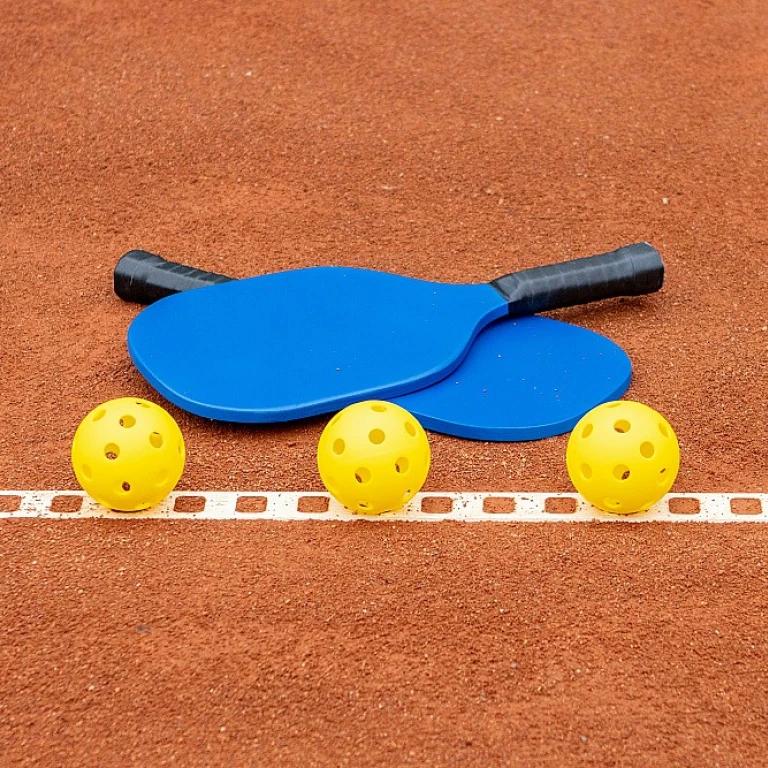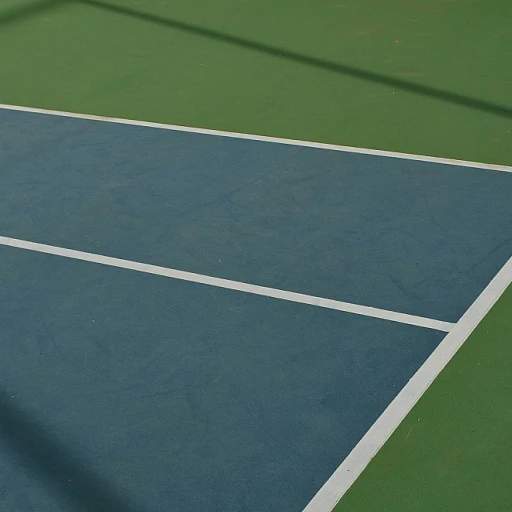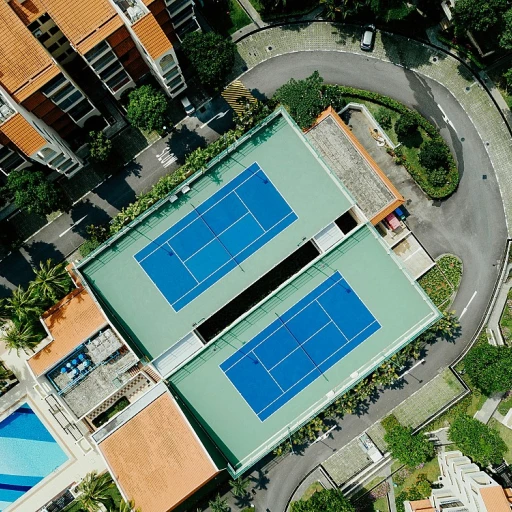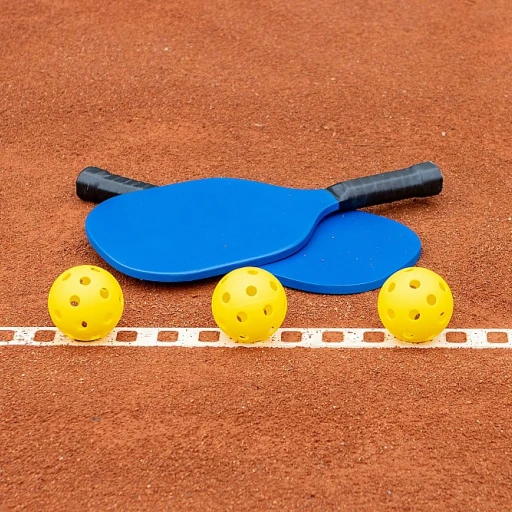The Basics of Pickleball Skill Levels
Grasping the Foundation of Pickleball Skill Levels
Understanding pickleball skill levels is essential for anyone looking to participate in the game with consistency and control. These levels provide a structured framework through which players' abilities can be evaluated. In pickleball, the skill rating system typically ranges from beginner to advanced levels. A common organization that defines these levels is the USA Pickleball, which uses a rating system that allows players to be assessed fairly and consistently based on their court performance. Skill levels help players find appropriate matches and improve by identifying areas of difficulty, such as making unforced errors or struggling with more advanced shots. The pickleball rating system considers various factors, including serves, returns, and overall shot reliability. To evaluate each player accurately, several criteria come into play, such as their ability to control the ball during a game and consistency in executing different shots. Players are often assessed through an official skill rating or through organizations like UTR Sports, which provide a UTR rating for pickleball players. Skill assessment doesn't stop at chart levels. Competitive play, often in tournaments, takes skill evaluation to the next level, providing an environment where players test their skills under pressure. This organized system ensures that players compete among peers of similar abilities, promoting fairness and encouraging growth in skill levels. For more on the key aspects of the game considered in skill levels, it's essential to familiarize yourself with the essential areas of the pickleball court, such as The Kitchen. This area of the court is particularly significant in strategy and play style. For an expanded view on this topic, consider reading about why is it called the Kitchen in pickleball.How Skill Levels Are Determined
Decoding the Rating System
Understanding how skill levels are determined in pickleball is crucial for players aiming to improve their game. The rating system provides a structured way to assess a player's abilities and track their progress over time. Various organizations, including USA Pickleball, use a comprehensive skill assessment to categorize players into different levels.
Key Factors in Skill Assessment
The assessment considers several aspects of a player's game:
- Consistency and Control: Players are evaluated on their ability to consistently control shots, including serves and returns.
- Shot Variety: The range of shots a player can execute effectively, such as volleys, dinks, and smashes, plays a significant role.
- Unforced Errors: Minimizing unforced errors is a critical factor in determining a player's skill level.
Rating Systems in Pickleball
Several rating systems exist to evaluate pickleball skills:
- USA Pickleball Rating: A widely recognized system that categorizes players from beginners to advanced levels.
- UTR Rating: Originally from tennis, UTR Sports has adapted its system for pickleball to offer a global rating for players.
- UTPR and DUPR: These are additional systems that provide nuanced assessments of player abilities.
Each system has its unique methodology, but all aim to provide a fair and accurate representation of a player's skill level. For players, understanding these systems can help set realistic goals and identify areas for improvement.
Improving Your Pickleball Skills
Elevating Your Pickleball Performance
Improving your pickleball skills is a continuous journey that requires dedication, practice, and an understanding of your current skill level. This improvement is crucial for moving up in the pickleball rating system, as evaluated by standards such as the UTR rating or UTPR. By honing specific aspects of your game, you can enhance your overall play and control of the court.- Serves and Returns Mastery: Start by focusing on your service game. Consistently delivering effective serves and returns significantly influences your skill rating. Practicing different types of serves and focusing on reducing unforced errors will increase your proficiency and confidence in matches.
- Developing Precision and Consistency: Precision in shots is key to advancing through skill levels. Being able to place the ball accurately, whether you're executing groundstrokes or quick dinks, shows quality play that is necessary for a higher level pickleball player. Emphasizing consistency in your shot-making can drastically improve your performance and skill assessment.
- Control and Strategy: Deepen your strategic understanding of the game. Work on controlling the tempo of rallies and learn to anticipate your opponent's moves. High level players need to not only master their shots but also strategically outplay their opponents. Resources like an assessment sheet can be used to measure your progress effectively.
- Regular Skill Assessment: Engage in self-assessment and seek feedback from other pickleball players or coaches to identify areas of strength and those needing improvement. Utilizing a rating system helps create tangible goals for improvement and track your progress over time, as seen in systems like USA Pickleball ratings.
Common Challenges in Skill Progression
Challenges in Skill Level Advancement
Progressing through the various skill levels in pickleball, from the basics to a high level of play, involves overcoming several common challenges that players often encounter. Understanding these hurdles is key to improving your game significantly and achieving a higher rating consistently.
One of the first hurdles is control and consistency. Many players struggle with consistently executing shots like serves, returns, and other basic shots throughout the game. This leads to unforced errors which directly affect your skill rating. Players need to focus on improving the accuracy and control of their shots to move up in the skill levels.
Another common challenge is the ability to adapt to different play styles. As players progress, they encounter opponents with varying skill levels, strategies, and techniques. Adapting your style of play to counteract different strategies requires practice and experience. It's crucial to develop a dynamic approach on the court to maintain an upper hand.
Understanding the rating systems like the UTR (Universal Tennis Rating), DUPR, and UTPR used by USA Pickleball can also be a challenging aspect for many players. Each system has its criteria for assessing skill level which might seem daunting initially. Players should familiarize themselves with the metrics used by these systems to evaluate their performance and progression.
Competing in higher skill level games can sometimes add pressure to perform and inadvertently hinder skill development. It's important for players to focus on learning and growth rather than just the outcome of a match. Participating in tournaments plays a significant role in this aspect, offering opportunities for realistic skill assessment and exposure to high-level play.
In summary, progressing through pickleball skill levels requires overcoming challenges such as shot consistency, play adaptability, understanding rating systems, and managing performance pressure. Emphasizing skill improvement, rather than just ratings, lays a solid foundation for advancement in this exciting sport.
The Role of Tournaments in Skill Assessment
The Influence of Competitions on Evaluating Player Skills
When it comes to refining and accurately assessing skill development, tournaments play a pivotal role. Understanding the dynamics of these competitive events sheds light on how they contribute to a player's skill assessment in pickleball.- Objective Evaluation: Tournaments provide an excellent platform for an objective evaluation of a player's abilities. By competing against players of similar skill levels, individuals receive a more accurate skill rating based on their performance. This ensures that the skill level reflects their current abilities effectively.
- Consistent Competition: Regular participation in tournaments helps players maintain consistency in their game. Players are more likely to engage in high level play, minimizing unforced errors and improving control over their shots. This consistent participation is crucial for players aiming to progress to higher skill levels.
- Rating Systems: In the world of pickleball, rating systems like UTR, DUPR, and USA Pickleball serve to quantify player skills during tournaments. These systems rank players based on specific metrics, such as serves, returns, and overall court performance. Consistently competing in tournaments can alter a player’s rating, influencing their commodity on the rating charts.
- Skill Development: By facing opponents with diverse playing styles, tournaments challenge players to adapt their strategy, refine their shots, and enhance their overall skills. Participants often observe distinct tactics and techniques that can be incorporated into their play, fostering skill improvement.
- Community and Feedback: Being part of a tournament exposes players to a community of enthusiasts who share insights and tips. This interpersonal interaction offers valuable feedback, much needed for advancing through skill levels.
Resources for Skill Development
Enhance Your Skills with Available Resources
To elevate your pickleball game and achieve higher skill levels, utilizing the right resources is crucial. Various tools and systems are designed to assist players in honing their skills consistently and effectively.- Assessment Sheets: Comprehensive assessment sheets can be found from different organizations, providing a structured approach to evaluate your current skill level, including serves, returns, and shot control.
- Rating Systems: Familiarize yourself with the USA Pickleball ratings and other systems like UTR and DUPR. These ratings help in understanding your skill progression and in setting realistic game improvement goals.
- Online Resources: Websites dedicated to pickleball, such as USA Pickleball, offer extensive resources on drills, tutorials, and tips to improve your basic and advanced-level shots and tactics.
- Community Play: Join local clubs or online communities that organize regular play sessions and clinics. Playing against diverse competition helps players at all levels refine their skills and reduce unforced errors.
- Tournament Participation: Engaging in tournaments not only provides an official skill assessment but also exposes players to varied playing styles, which is invaluable for skill enhancement.




